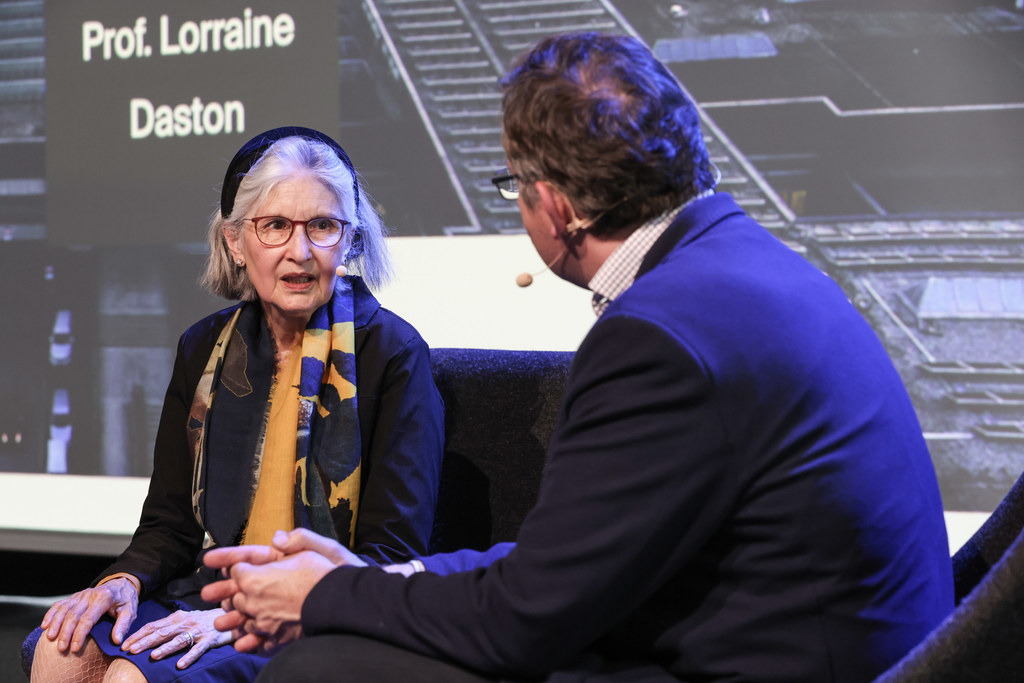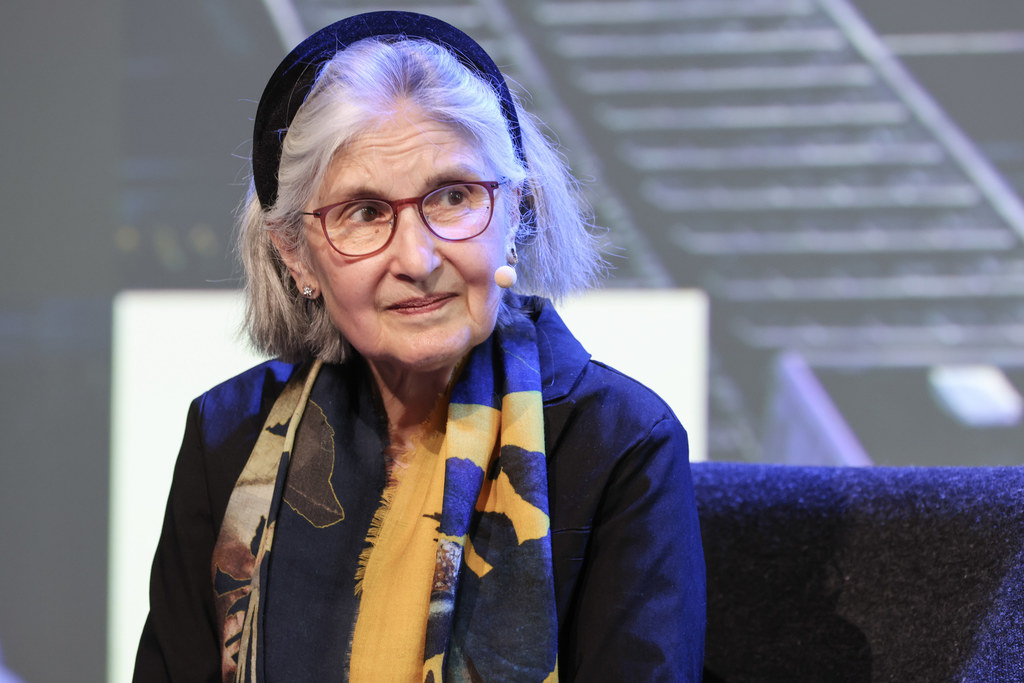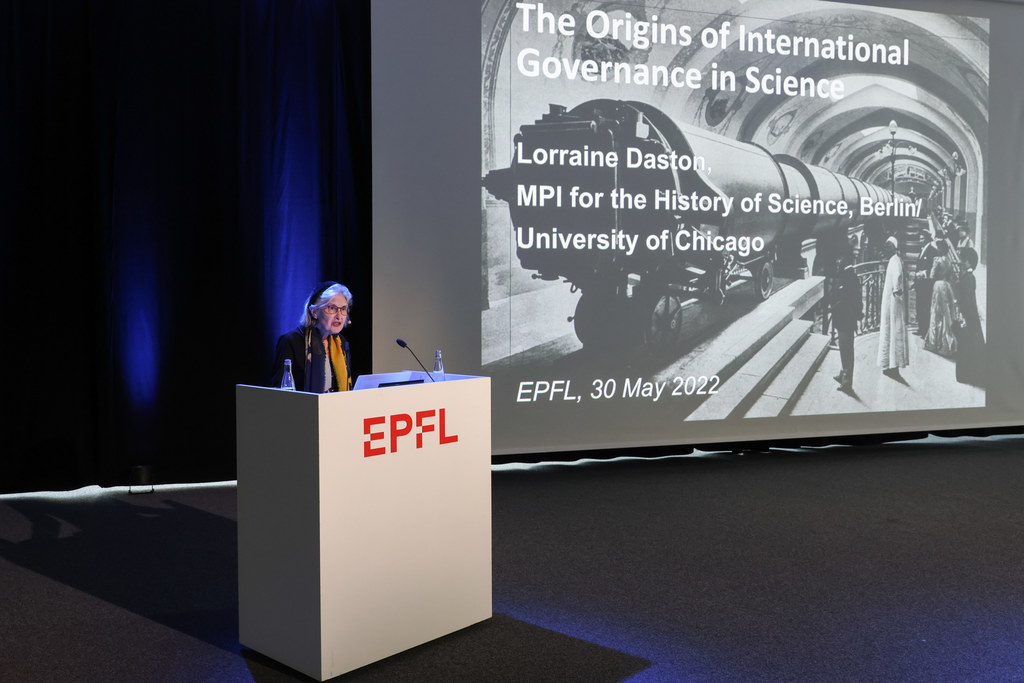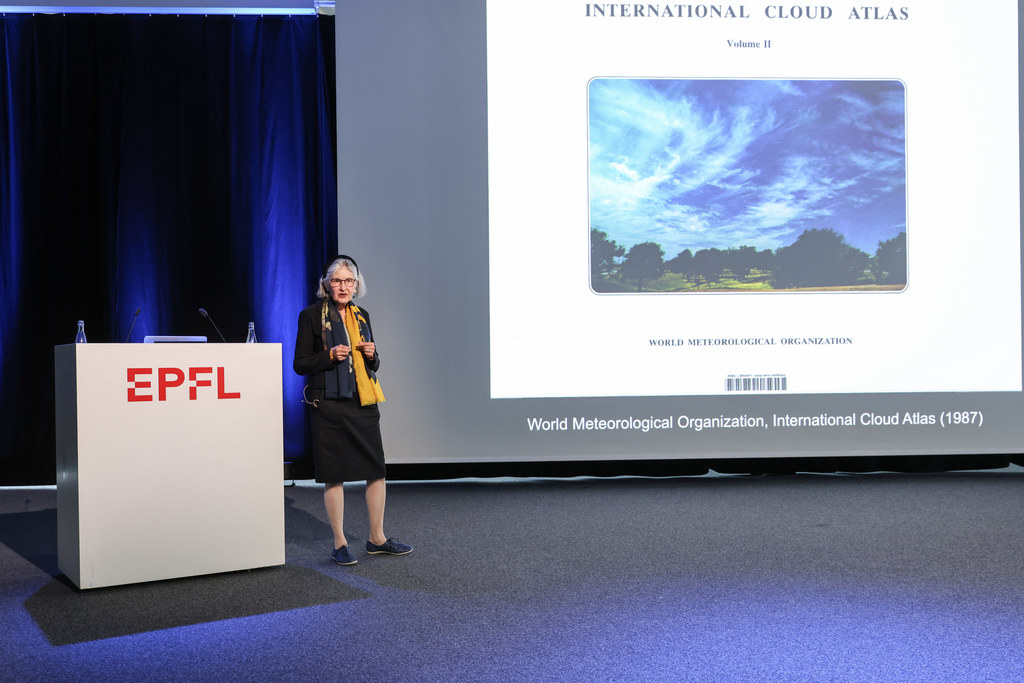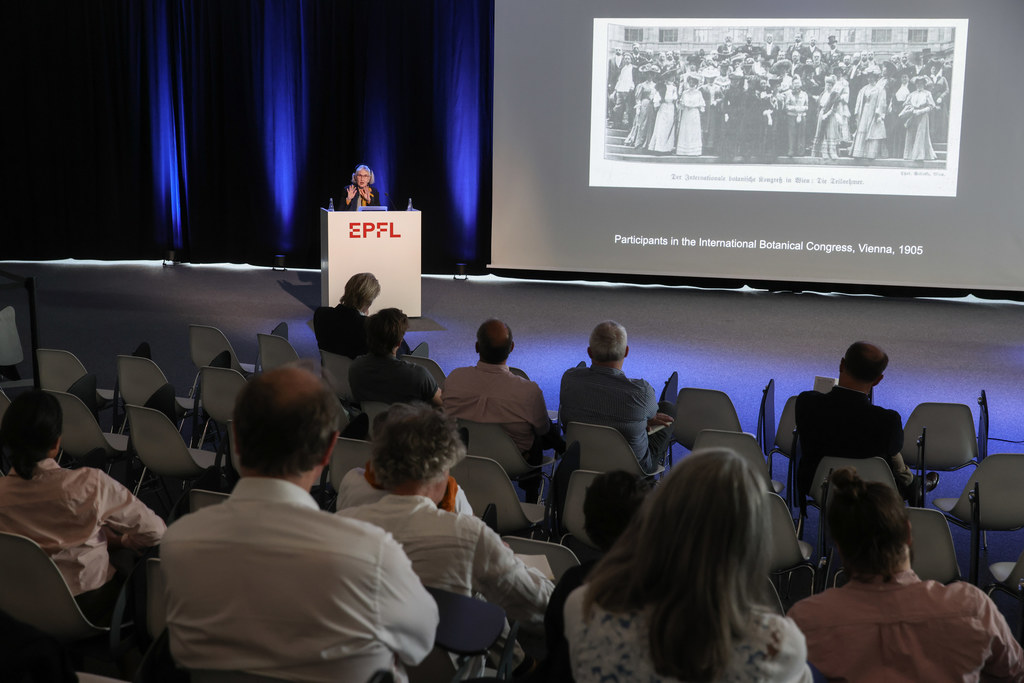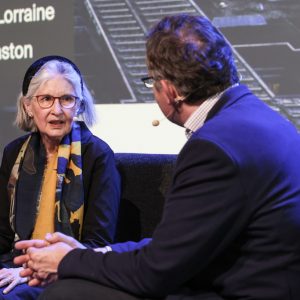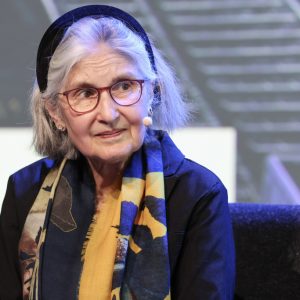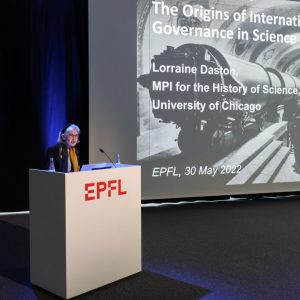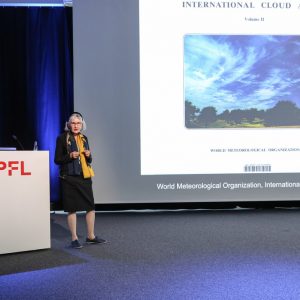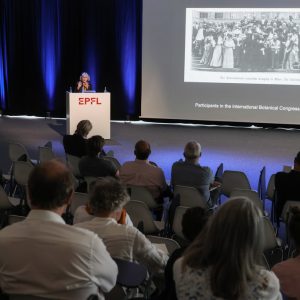
“The Origins of International Governance in Science”
Lorraine Daston
Director at the Max Planck Institute for the History of Science (MPIWG), Berlin
Monday May 30, 2022 | 5pm | Forum Rolex and online
Faced with two crises of planetary dimensions, climate change and the SARS-CoV-2 pandemic, politicians responded nationally and scientists responded internationally. Why?
Science has been cosmopolitan and collective since at least the seventeenth century, but there’s big difference between exchanging letters, publications, and occasional visits among citizens of the Republic of Letters, on the one hand, and, on the other, subordination of individual and national research traditions, priorities, and practices to binding agreements reached by international disciplinary bodies empowered by no one but themselves. Only in the late 19th century did scientists begin to attempt international governance – arguably still the most effective form of international governance we have.
Lorraine Daston is Director at the Max Planck Institute for the History of Science, Berlin, Visiting Professor in the Committee on Social Thought at the University of Chicago, and Permanent Fellow of the Wissenschaftskolleg zu Berlin. Her work spans a broad range of topics in the early modern and modern history of science, including probability and statistics, wonders and the order of nature, scientific images, objectivity and other epistemic virtues, quantification, observation, algorithms, and the moral authority of nature. She has been awarded the Sarton Medal of the History of Science Society (2012), the Dan David Prize in the History of Science (2018), and the Heineken Prize for History of the Royal Netherlands Academy (2020) for her scholarly work. Her publications include Classical Probability in the Enlightenment (1988), (co-authored with Peter Galison), Objectivity (2007), (co-authored with Paul Erikson et al.) How Reason Almost Lost Its Mind: The Strange Career of Cold War Rationality (2013), Against Nature (2019), and Rules: A Short History of What We Live By (in press). She is a Fellow of the American Academy of Arts and Sciences, a member of the American Philosophical Society and the Berlin-Brandenburg Academy of Sciences, and a corresponding member of the British Academy.
5:00 pm
Welcome address
Jan Hesthaven, Vice President for Academic Affairs
5:10 pm
Campus Lecture
“The Origins of International Governance in Science”
Lorraine Daston, Director at the Max Planck Institute for the History of Science (MPIWG), Berlin, Lecture in presence of the speaker
Panel discussion
Lorraine Daston
Béla Kapossy, Director of the College of Humanities (CDH)
6:15 pm
Q&A
6:30 pm
Cocktail
